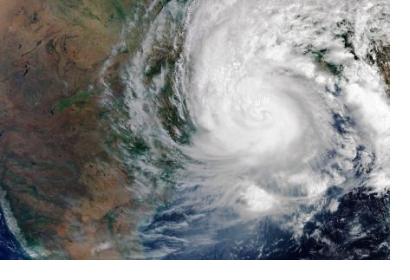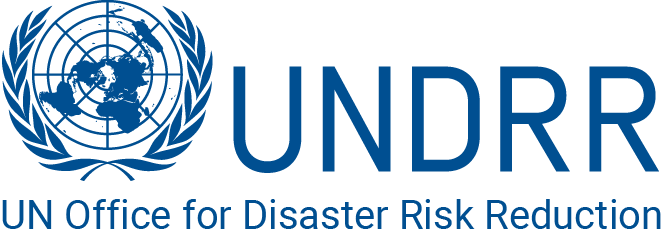
United Nations Office for Outer Space Affairs through its UN-SPIDER programme.
The conference is supported by the United Nations Office for Disaster Risk Reduction (UNDRR).
The world has faced unprecedented challenges since the outbreak of COVID-19 that has impacted humanity. Responding to disasters and keeping the cities and communities safe and resilient during a pandemic is no more a ‘business as usual’.
In 2020, several countries faced several unusual as well as intense disasters, for example, torrential rains, floods and mudslides on the southwestern island of Kyushu in Japan, major floods in Jiangxi in China, widespread flooding and landslides from the Southwest Monsoon in South Asia (India, Bhutan, Bangladesh and Nepal), powerful and deadly tropical cyclone Amphan that caused widespread damage in Eastern India and Bangladesh, rare cyclonic storm Nisarg - the strongest tropical cyclone to hit the west coast of India, huge wildfires in the United States and Canada, severe floods in Africa (Sudan, Mauritius and Somalia) and flooding in El Salvador as tropical storm Amanda passed over Central America. These disasters killed scores of people and displaced millions exactly when countries are facing multiple challenges due to the pandemic.
With the measures in place to curb the virus outbreak, the disaster management agencies require much precise information on hazards, risks, vulnerability and early warning of the upcoming disasters to keep the communities safe and plan an effective emergency response.
The conference will focus on the lessons learned during an unprecedented pandemic situation, especially in employing space-based tools and geospatial information.
To register for the event, please follow this link.

The conference is supported by the United Nations Office for Disaster Risk Reduction (UNDRR).
Background
The United Nations Office for Outer Space Affairs (UNOOSA) is pleased to announce the “United Nations International Conference on Space-based Technologies for Disaster Risk Reduction – ‘Lessons learned during the unprecedented pandemic situation”, to be held from 24-25 November 2020. This conference is organised by the Beijing office of the United Nations Platform for Space-based Information for Disaster Management and Emergency Response (UN-SPIDER), a UNOOSA programme.
The conference follows nine conferences held since 2011. Previous conferences covered the themes of “Best practices for risk reduction and rapid response mapping” in 2011, “Risk assessment in the context of global climate change” in 2012, “Disaster risk identification, assessment and monitoring” in 2013, “Multi-hazard disaster risk assessment” in 2014, “A consolidating role in the implementation of the Sendai Framework on Disaster Risk Reduction 2015-2030” in 2015, “Understanding disaster risks” in 2016, “Building resilience through integrated application” in 2017, “Enhancing disaster preparedness for effective emergency response” in 2018 and “Policy perspective” in 2019. These conferences offered a forum for disaster management communities and experts to strengthen their capabilities in using space-based information to identify, assess, monitor and respond to disaster risks and integrate space technology into long-term disaster risk management efforts. Through these conferences, the UN-SPIDER programme of the United Nations Office for Outer Space Affairs connects the disaster management community and providers of geospatial information and develops the programmes to help developing countries to use space-based information in all stages of disaster management.
Objectives
The objectives of the conference are:
To address the challenges posed by the Covid-19 outbreak to the disaster management community
To share experiences of how space-based technologies were effectively employed to better mitigate disasters during the challenges posed by the pandemic situation
To highlight the complementary and inclusive use of space-based technologies in areas related to climate adaptation and disaster resilience
To engage with the disaster management community through the UN-SPIDER programme to offer technical advisory support, especially to developing countries
Expected outcomes
Strengthening international cooperation to developing countries, through the use of space-based technologies, for supporting implementation of Sendai Framework
Guidance on incorporating the use of space-based information in national DRR strategies and action plans
Understanding of advance space technology solutions to address multiple challenges related to climate change, disaster risk management and Covid-19 outbreak
Preliminary programme of the conference
Day 1, 24 November 2020
09:00-11:00 (Central Europe) 15:00-17:00 (Bangkok), 02:00-04:00 (Chicago, USA) | |
Shirish Ravan | Context setting |
| Session 1: Lessons learned during an unprecedented pandemic situation (Chair: Shirish Ravan, UNOOSA) # UN-SPIDER | |
Sanjay Srivastava Chief, Disaster Risk Reduction, United Nations Social and Economic Commission for Asia and the Pacific, Thailand | Disaster risk reduction and Covid-19 situation – changing policy perspective (Presentation) |
Koji Suzuki Executive Director, Asian Disaster Reduction Center (ADRC) Japan | Sentinel Asia activation for the flood disaster in Japan under the COVID-19 (Presentation) |
Krishna Vatsa Member, National Disaster Management Authority, India | Efforts to mitigate the impact of floods and cyclones in India during the 2020 pandemic |
Titus A. Kuuyuor Senior Resilience Advisor, United Nations Development Programme, Ethiopia | Use of Space-based technology to strengthen Humanitarian-Development-Peace (HDP) Nexus in the face of COVID-19 and multiple pre-existing risks (Presentation) |
| Adam Rowland Fysh United Nations Office for Disaster Risk Reduction, Switzerland | Opportunities to connect space-based information to understanding systemic risks: COVID-19 and beyond (Presentation) |
15:00-17:00 (Central Europe) 21:00-23:00 (Bangkok), 08:00-10:00 (Chicago, USA) | |
Session 2: Space technology contribution during the pandemics situation (Chair: James Hagen, Planetary Studies Foundation, Professor Emeritus, Saint Xavier University) | |
Wang Yong | Applications of space-based infectious disease detection models and enlightenment for COVID-19 control (Presentation) |
Talbot Brooks Director, Center for Interdisciplinary Geospatial Information Technologies, Delta State University, United States of America | Ethical use of space-based technologies for disaster management (Presentation) |
James Hagen Executive Board Member, Planetary Studies Foundation, Professor Emeritus, Saint Xavier University, United States of America | What have former pandemics and COVID-19 taught us about societal disruption in a time lacking in antivirals and vaccines? (Presentation) |
Isabelle Duvaux-Béchon Head of the Member States Relations and Partnerships Office (DG-PM), European Space Agency | Space programmes and technologies addressing global challenges such as pandemics |
Radu Botez UN-SPIDER, UNOOSA | Cataloguing space-based applications related to COVID-19: The UN-SPIDER Knowledge Portal as an information hub |
Markus Enenkel PERIGEE and Harvard Humanitarian Initiative | Forgotten crises - Unlocking the power of Earth observation through social analytics? (Presentation) |
Day 2, 25 November 2020
09:00-11:00 (Central Europe) 15:00-17:00 (Bangkok), 02:00-04:00 (Chicago, USA), | |
Session 3: Space for climate adaption and disaster resilience (Chair: Komali Kantamaneni, Solent University) | |
Engelbert Niehaus Mathematician and Computer Scientist University of Konstanz-Landau, Germany | Link between disaster management and global health (Presentation) |
Giriraj Amarnath Senior Researcher and Research Group Leader, International Water Management Institute, Sri Lanka | Climate-related disasters and index-based risk transfer (Presentation) |
Luiza C. Campos Associate Professor, Co-Director of the Centre for Urban Sustainability and Resilience, University College London, United Kingdom of Great Britain and Northern Ireland | Space tools to assist water and sanitation management in disaster and emergency management (Presentation) |
| Verena Mrak Regional Academy on the United Nations / University of Vienna, Austria | Opportunities and Challenges in the Use of Space-Based Technologies for Flood Management in Urban Africa (Presentation) |
Markus Woltran UNOOSA, Vienna, Austria | Space4Climate Action (Presentation) |
12:00-14:00 (Central Europe) 18:00-20:00 (Bangkok), 05:00-07:00 (Chicago, USA) | |
Session 4: Highlights: Initiative from UN-SPIDER network to use space-based technologies in disaster management (Chair: Shirish Ravan, UNOOSA) | |
Update from countries about their current efforts to use space-based information 5 minutes each | Thiri Muang, Ministry of Social Welfare, Relief and Resettlement, Myanmar (Presentation) D.Sodnomragchaa, National Emergency Management Agency, Mongolia Sudantha Ranasinghe, Disaster Management Centre, Sri Lanka (Presentation) Silap Boupha, Ministry of Science and Technology, Lao PDR (Presentation) Quang Hưng, Disaster Management Policy and Technology Center, Vietnam (Presentation) Vhusomuzi B. Sithole, UNDP, Zimbabwe (Presentation) |
Update from UN-SPIDER Regional Support Offices 5 minutes each | Mohammad Farooq, SUPARCO, Pakistan (Presentation) Mostafa Mansourpour, Iranian Space Agency Peeranan Towashiraporn, Asia Disaster Prepared Centre (Presentation) Birendra Bajracharya, ICIMOD, Nepal (Presentation) Rokhis Khomarudin, LAPAN, Indonesia Giriraj Amarnath, IWMI, Sri Lanka |
Prakash Chauhan Director, Centre for Space, Science and Technology Education for Asia and the Pacific (UN-affiliated), India 10 minutes | Massive Open Online Course (MOOC) on Geospatial Technologies for Disaster Risk Management – UNOOSA and CSSTEAP initiative (Presentation) |
Concluding remarks | Shirish Ravan, UNOOSA |
